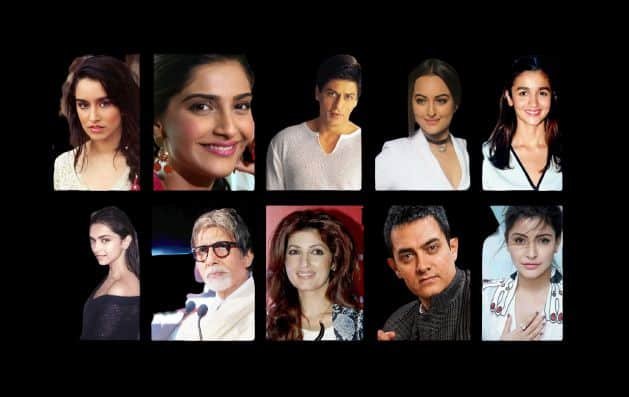Asha Parekh (born October 2, 1942) is a retired Indian actress, film director, and producer who appeared in many commercially successful films throughout her career.
She was the highest-paid actress of her time and one of the most successful actresses of the 1960s and 1970s.
She is considered one of the most influential actresses of all time in Hindi cinema. In 1992, she was honoured with the Padma Shri by the Government of India for her contribution to the field of cinema, and she was also honoured with the Dadasaheb Phalke Award for 2020.
Career
Parekh started her career as a child artist under the screen name Baby Asha Parekh. Famed film director Bimal Roy saw her dance at a stage function and cast her at the age of ten in Maa (1952) and then repeated her in Baap Beti (1954).
The latter film\’s failure disappointed her, and even though she did a few more child roles, she quit to resume her schooling. At sixteen, she decided to try acting again and to make her debut as a heroine, but she was rejected from Vijay Bhatt\’s Goonj Uthi Shehnai (1959) in favour of actress Ameeta because the filmmaker claimed she was not star material. Precisely eight days later, film producer Subodh Mukherjee and writer-director Nasir Hussain cast her as the heroine in Dil Deke Dekho (1959), opposite Shammi Kapoor, which made her a huge star. It also started a long association with Hussain, who cast her as his heroine in six more films: Jab Pyar Kisi Se Hota Hai (1961), Phir Wohi Dil Laya Hoon (1963), Teesri Manzil (1966), Baharon Ke Sapne (1967), Pyar Ka Mausam (1969), and Caravan (1971).
Booking Secretary Management Details
- Asha Parekh Phone Number: +91 022 4151XXXX
- Asha Parekh WhatsApp Number: +91 9988775XX
- Asha Parekh Manager Phone Number: +91 9800-997-XXX
- Asha Parekh Office Phone Number +91 9800-557-XXX
- Asha Parekh Booking Agent Phone Number: +91 9995-555-XXX
- Asha Parekh Contact Number: +91 994252XXXX
- Asha Parekh Mobile Number: +91 994151XXXX
- Asha Parekh Manager Contact Number: +91 93987076XX
She also did a cameo in Nasir Hussain\’s film Manzil Manzil (1984), with whom she had earlier done six films. Hussain also got her involved in the distribution of 21 films, starting with Baharon Ke Sapne (1967). Parekh was primarily known as a glamour girl, excellent dancer, and tomboy in most of her films, until director Raj Khosla gave her a serious image by casting her in tragic roles in three of her favourite films: Do Badan (1966), Chirag (1969), and Main Tulsi Tere Aangan Ki (1978). Director Shakti Samanta gave her more dramatic roles in her other favourite films, Pagla Kahin Ka (1970) and Kati Patang (1970); the latter earned her the Filmfare Award for Best Actress. Many important directors repeatedly cast her in several of their films, including Vijay Anand and Mohan Segal.Parekh acted in her mother tongue by starring in three Gujarati films at the height of her fame in Hindi films, the first being Akhand Saubhagyavati (1963), which became a huge hit. She also acted in some Punjabi films, such as Kankan De Ohle (1971) opposite Dharmendra and Lambhardarni (1976) with Dara Singh, as well as the hit Kannada film Sharavegada Saradara (1989). As a leading heroine, she formed popular onscreen pairings with actors including Dev Anand, Shammi Kapoor, and Rajesh Khanna. After her days as a leading lady ended, Parekh took on supporting roles as a bhabhi (sister-in-law) and mother.A notable film she did in which she played such a part is Kaalia (1981), which is the only film in which she shared screen space with Amitabh Bachchan. But she called these roles the \”awkward phase\” of her career. So she stopped acting in films, and her friends recommended that she become a television director. She took their advice and became a television director in the early 1990s with the Gujarati serial Jyoti. She formed a production company, Akruti, and produced serials like Palash ke Phool, Baaje Payal, Kora Kagaz, and a comedy, Dal Mein Kaala. She was the president of the Cine Artistes\’ Association from 1994 to 2000. Parekh was the first female chairperson of the Central Board of Film Certification (Censor Board) of India. She held the post from 1998 to 2001, for which she received no salary but plenty of controversy for censoring films and not giving clearance to Shekhar Kapur\’s Elizabeth. Later, she became the treasurer of the Cine and Television Artists Association (CINTAA) and was later elected as one of its office-bearers. 1 Asha stopped acting in 1995 to pursue directing and producing television serials. Parekh received the Filmfare Lifetime Achievement Award in 2002. 1 She has continued to receive other lifetime achievement awards: the Kalakar Award in 2004; 20] the International Indian Film Academy Awards in 2006. The Pune International Film Festival Award in 2007; 2 and the Ninth Annual Bollywood Award in Long Island, New York, in 2007.She received the Living Legend Award from the Federation of Indian Chambers of Commerce and Industry (FICCI). In 2008, she was a judge on the reality show Tyohaar Dhamaaka on the Indian entertainment channel 9X.2 In 2017, her autobiography (co-written by Khalid Mohamed) titled \”The Hit Girl\” was released.
